The Federal Chamber of Automotive Industries (FCAI) released new car sales figures for November, which fell by 11.6% year over year to 99,091.
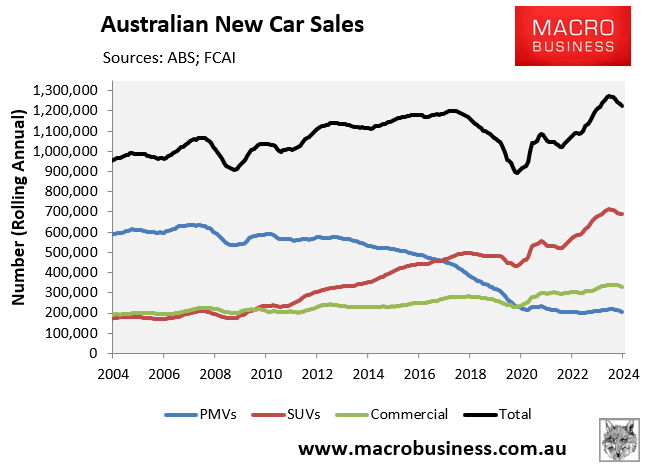
“From an historical perspective, the 2024 year-to-date result is strong”, noted FCAI Chief Executive Tony Weber.
“However, the market is starting to show a number of clear trends. The first half of 2024 recorded market growth of 8.7% compared with 2023. Since July, we have seen the market decline by 8.2% compared with 2023″.
“The Private buyer segment continues to struggle with a decline of 16.6% on November 2023. This follows falls of 14.2% in October, 17.2% in September and 15.9% in August”.
“This is a disturbing trend, which illustrates how cost of living pressures are impacting households”, noted Webber.
The data showed a clear consumer shift from battery electric vehicles (EVs) toward hybrids.
“The Australian experience with EVs is similar to many major markets overseas such as Europe, New Zealand and the USA”, noted Webber.
“Car makers are responding to regulatory settings that mandate an increase in the number of zero-emission vehicles by introducing new products”.
“However, consumers remain cautious about making the shift to pure EVs and instead are purchasing hybrid or plug-in hybrid vehicles”, he said.
As shown in the graphic below, battery EV sales are falling, hybrids are proliferating, and ICE vehicles continue to dominate.
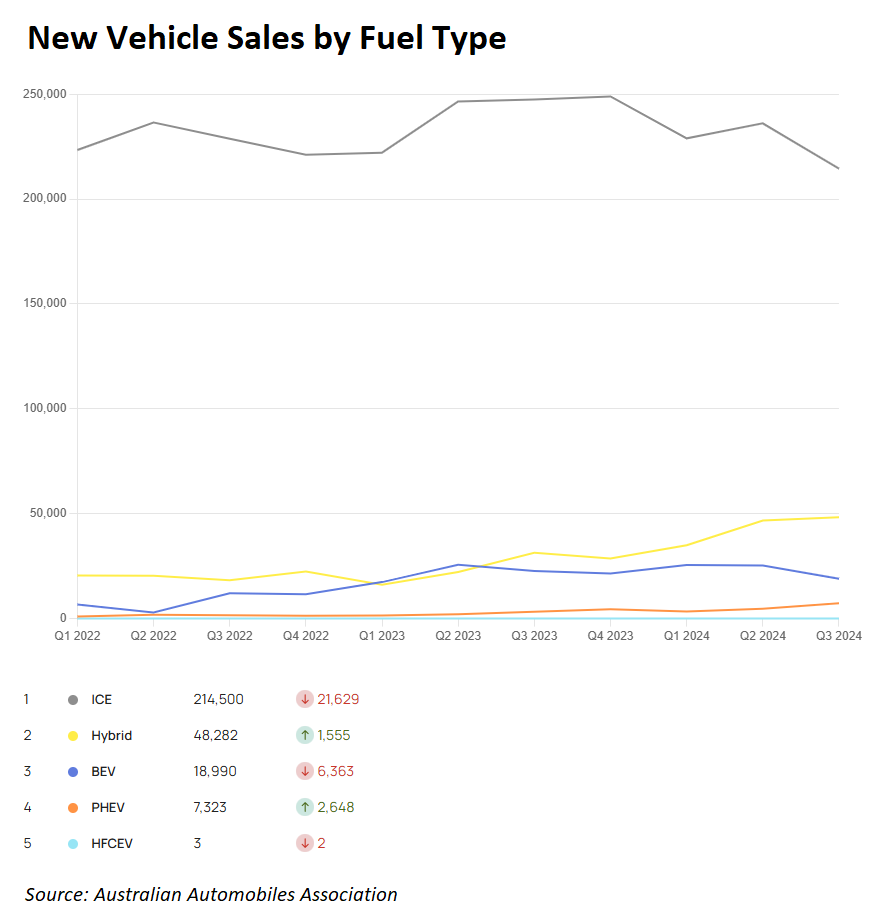
Battery EV sales are a rounding error in the overall passenger vehicle market.
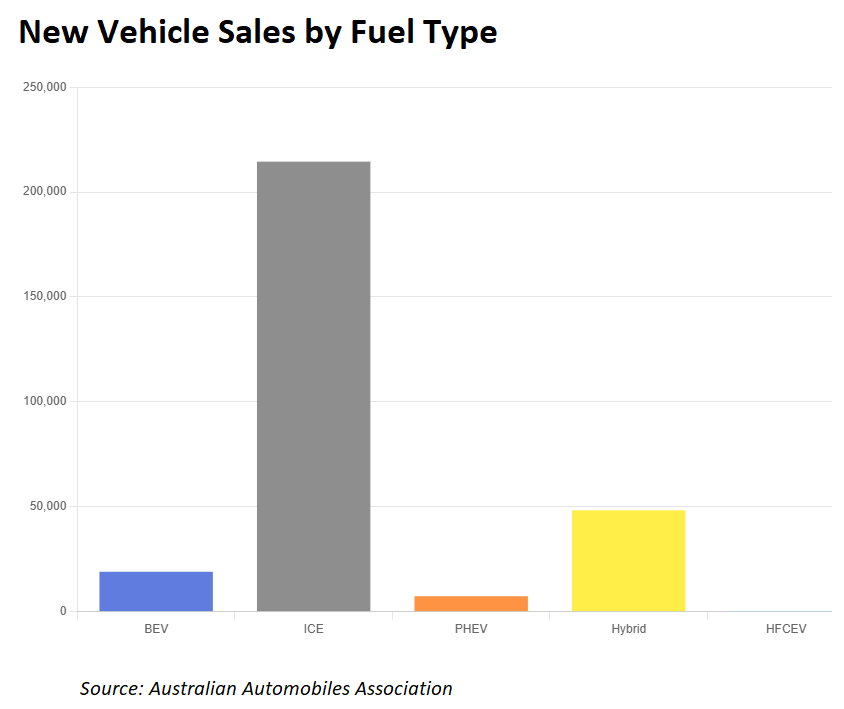
The sluggish uptake of battery EVs comes despite a raft of financial incentives offered by federal and state governments. These include a higher luxury car tax threshold and exemptions from fringe benefits tax and customs duty.
Battery EVs are also exempted from paying road user charges via fuel excise, which is effectively a subsidy.
However, several jurisdictions reduced rebate programs and tax exemptions for 2023 and 2024.
The $3,000 rebates in New South Wales and South Australia terminated on January 1, this year. The New South Wales government also eliminated a stamp duty rebate for new and used zero-emission vehicles worth up to $78,000. Both incentives have been offered since 2021.
Victoria’s $3,000 rebate, which began in 2021, expired in the middle of 2023.
In the ACT, the incentive of two years of free registration expired on June 30, 2024.
Queensland’s $6,000 incentive for electric vehicles expired in September 2024.
The Australian Energy Market Operator (AEMO) recently lowered its forecast for battery EV adoption over the next decade from seven million to four million units.
A recent McKinsey Mobility Consumer survey shows that 49% of Australian EV owners are “very likely” to return to ICE vehicles.
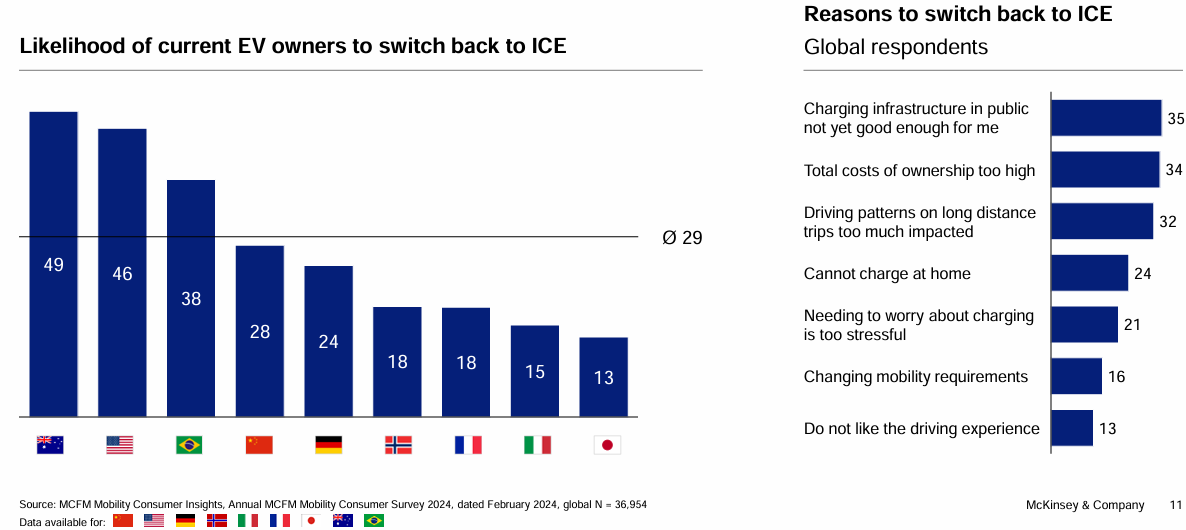
Respondents’ main worries were the poor state of public charging infrastructure (35%) and expensive purchase costs (34%).
The comparison website Compare the Market recently raised concerns about ownership expenses. The study of 12 insurers found that electric vehicles cost about 50% more to insure than their ICE counterparts.
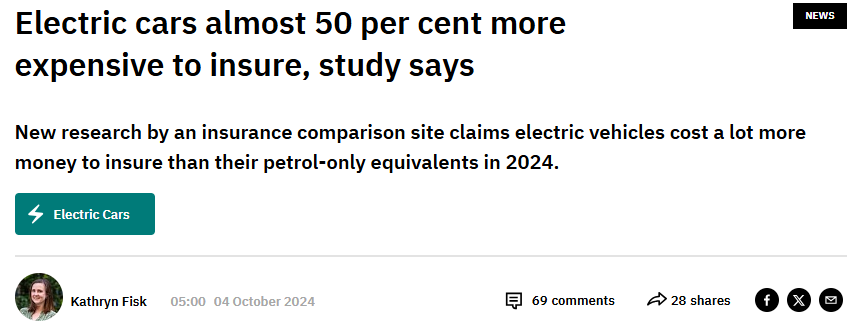
“EVs are generally more expensive to insure because the battery pack creates more complexity for repairers, many EV-specific parts need to be imported from overseas, and there are fewer qualified smash repairers for electric cars”, Compare the Market’s economic director, David Koch said.
Several major global vehicle manufacturers have reduced EV manufacturing due to weak customer demand and slowing global sales.
The truth is that battery EVs are not ready for widespread adoption. Battery EVs continue to be excessively expensive, lack quick and convenient charging options, have a short range (especially on highways without regenerative braking or when heavy heating or air conditioning is required), incur high insurance and repair costs, and experience dramatic price depreciation on resale.
Standard hybrids, on the other hand, solve the majority of these disadvantages, which explains why their sales have increased so dramatically.
Toyota has produced dependable and reasonably priced hybrids since the late 1990s, when it introduced the Prius.
Hybrid vehicles have excellent fuel economy and range while also having a high resale value. This contrasts with battery EVs, whose depreciation is comparable to disposable rubbish.

